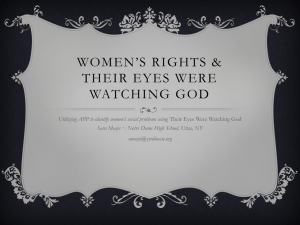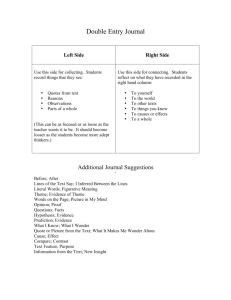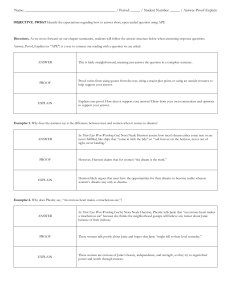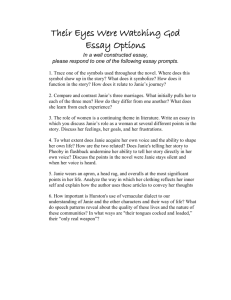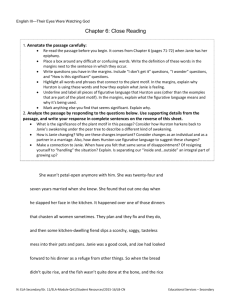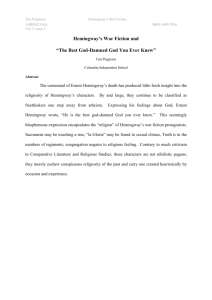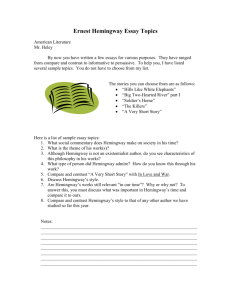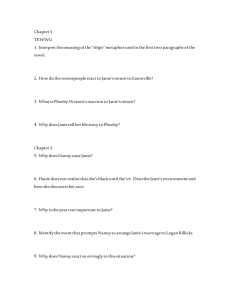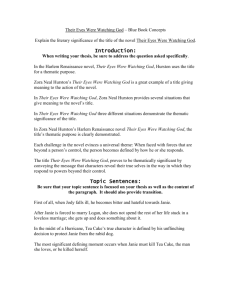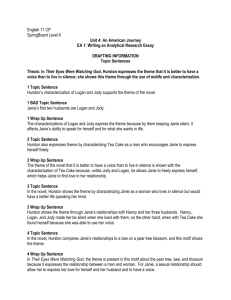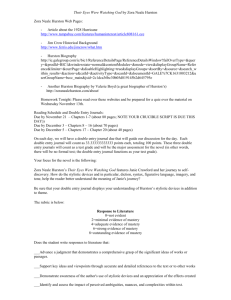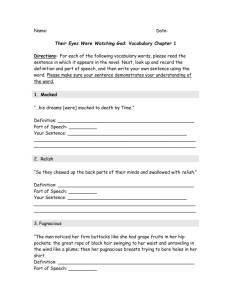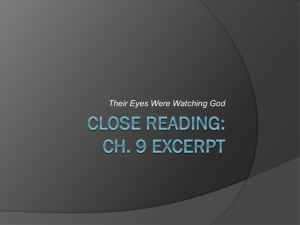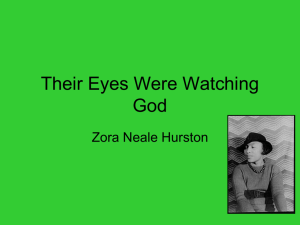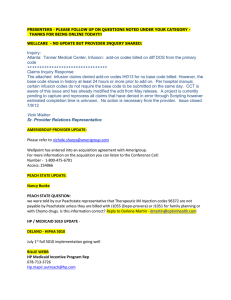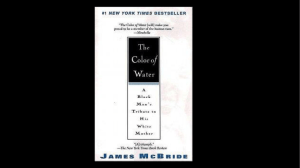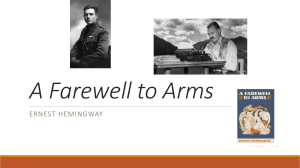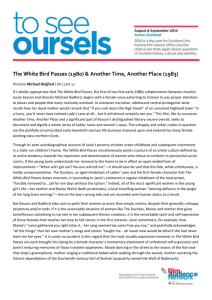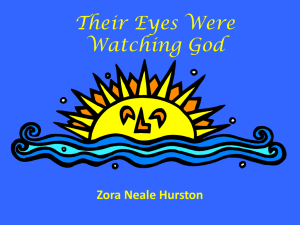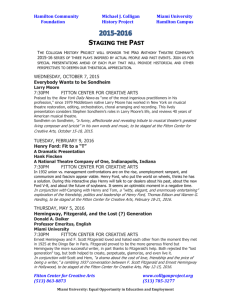Summaries courtesy of amazon.com
advertisement
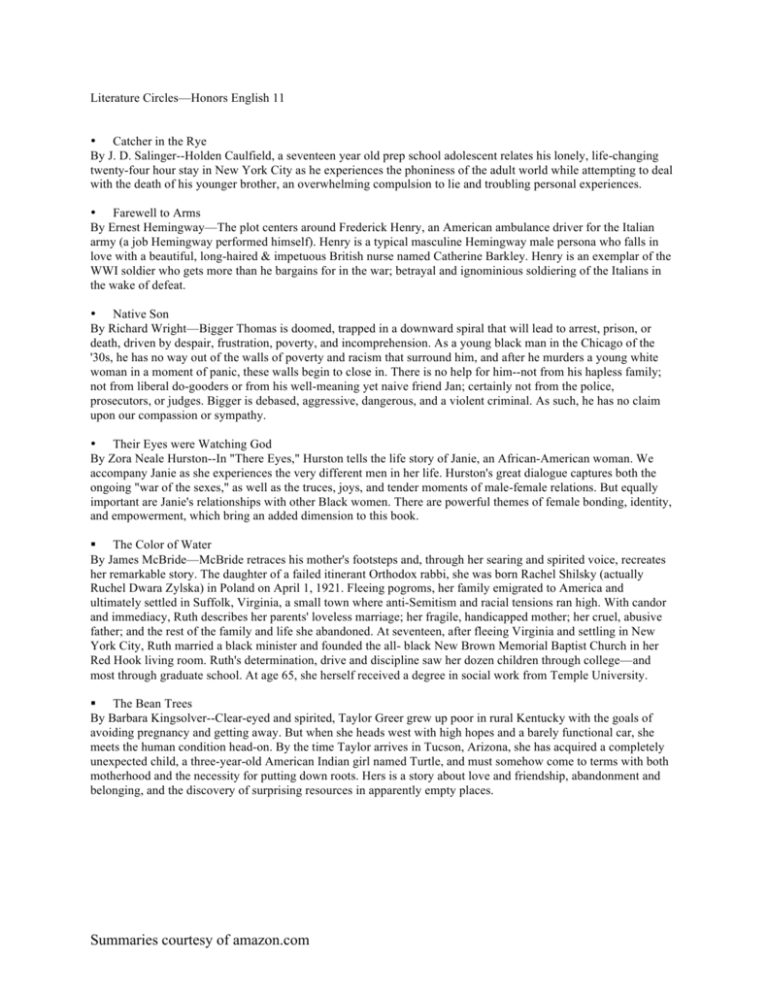
Literature Circles—Honors English 11 • Catcher in the Rye By J. D. Salinger--Holden Caulfield, a seventeen year old prep school adolescent relates his lonely, life-changing twenty-four hour stay in New York City as he experiences the phoniness of the adult world while attempting to deal with the death of his younger brother, an overwhelming compulsion to lie and troubling personal experiences. • Farewell to Arms By Ernest Hemingway—The plot centers around Frederick Henry, an American ambulance driver for the Italian army (a job Hemingway performed himself). Henry is a typical masculine Hemingway male persona who falls in love with a beautiful, long-haired & impetuous British nurse named Catherine Barkley. Henry is an exemplar of the WWI soldier who gets more than he bargains for in the war; betrayal and ignominious soldiering of the Italians in the wake of defeat. • Native Son By Richard Wright—Bigger Thomas is doomed, trapped in a downward spiral that will lead to arrest, prison, or death, driven by despair, frustration, poverty, and incomprehension. As a young black man in the Chicago of the '30s, he has no way out of the walls of poverty and racism that surround him, and after he murders a young white woman in a moment of panic, these walls begin to close in. There is no help for him--not from his hapless family; not from liberal do-gooders or from his well-meaning yet naive friend Jan; certainly not from the police, prosecutors, or judges. Bigger is debased, aggressive, dangerous, and a violent criminal. As such, he has no claim upon our compassion or sympathy. • Their Eyes were Watching God By Zora Neale Hurston--In "There Eyes," Hurston tells the life story of Janie, an African-American woman. We accompany Janie as she experiences the very different men in her life. Hurston's great dialogue captures both the ongoing "war of the sexes," as well as the truces, joys, and tender moments of male-female relations. But equally important are Janie's relationships with other Black women. There are powerful themes of female bonding, identity, and empowerment, which bring an added dimension to this book. The Color of Water By James McBride—McBride retraces his mother's footsteps and, through her searing and spirited voice, recreates her remarkable story. The daughter of a failed itinerant Orthodox rabbi, she was born Rachel Shilsky (actually Ruchel Dwara Zylska) in Poland on April 1, 1921. Fleeing pogroms, her family emigrated to America and ultimately settled in Suffolk, Virginia, a small town where anti-Semitism and racial tensions ran high. With candor and immediacy, Ruth describes her parents' loveless marriage; her fragile, handicapped mother; her cruel, abusive father; and the rest of the family and life she abandoned. At seventeen, after fleeing Virginia and settling in New York City, Ruth married a black minister and founded the all- black New Brown Memorial Baptist Church in her Red Hook living room. Ruth's determination, drive and discipline saw her dozen children through college—and most through graduate school. At age 65, she herself received a degree in social work from Temple University. The Bean Trees By Barbara Kingsolver--Clear-eyed and spirited, Taylor Greer grew up poor in rural Kentucky with the goals of avoiding pregnancy and getting away. But when she heads west with high hopes and a barely functional car, she meets the human condition head-on. By the time Taylor arrives in Tucson, Arizona, she has acquired a completely unexpected child, a three-year-old American Indian girl named Turtle, and must somehow come to terms with both motherhood and the necessity for putting down roots. Hers is a story about love and friendship, abandonment and belonging, and the discovery of surprising resources in apparently empty places. Summaries courtesy of amazon.com
